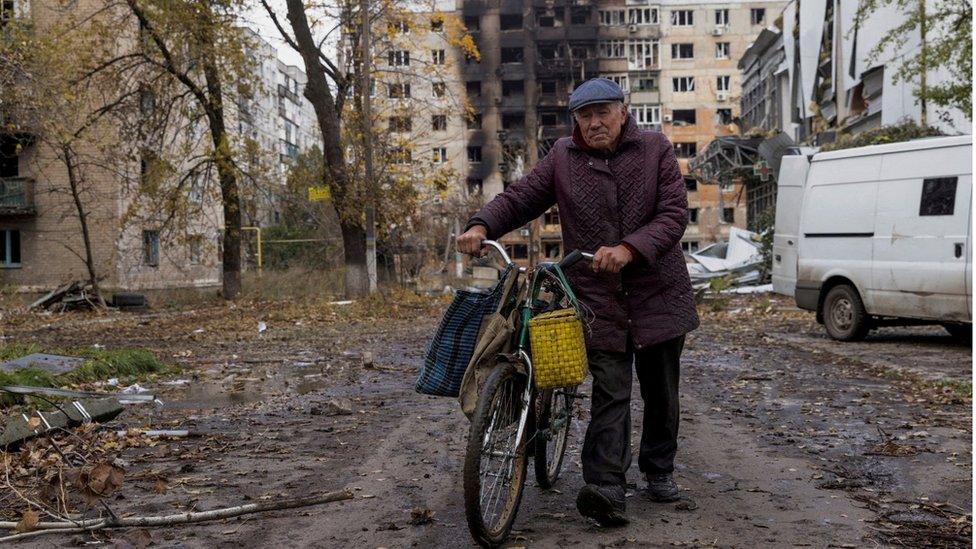Gains in Russian territory shape Ukraine independence celebrations
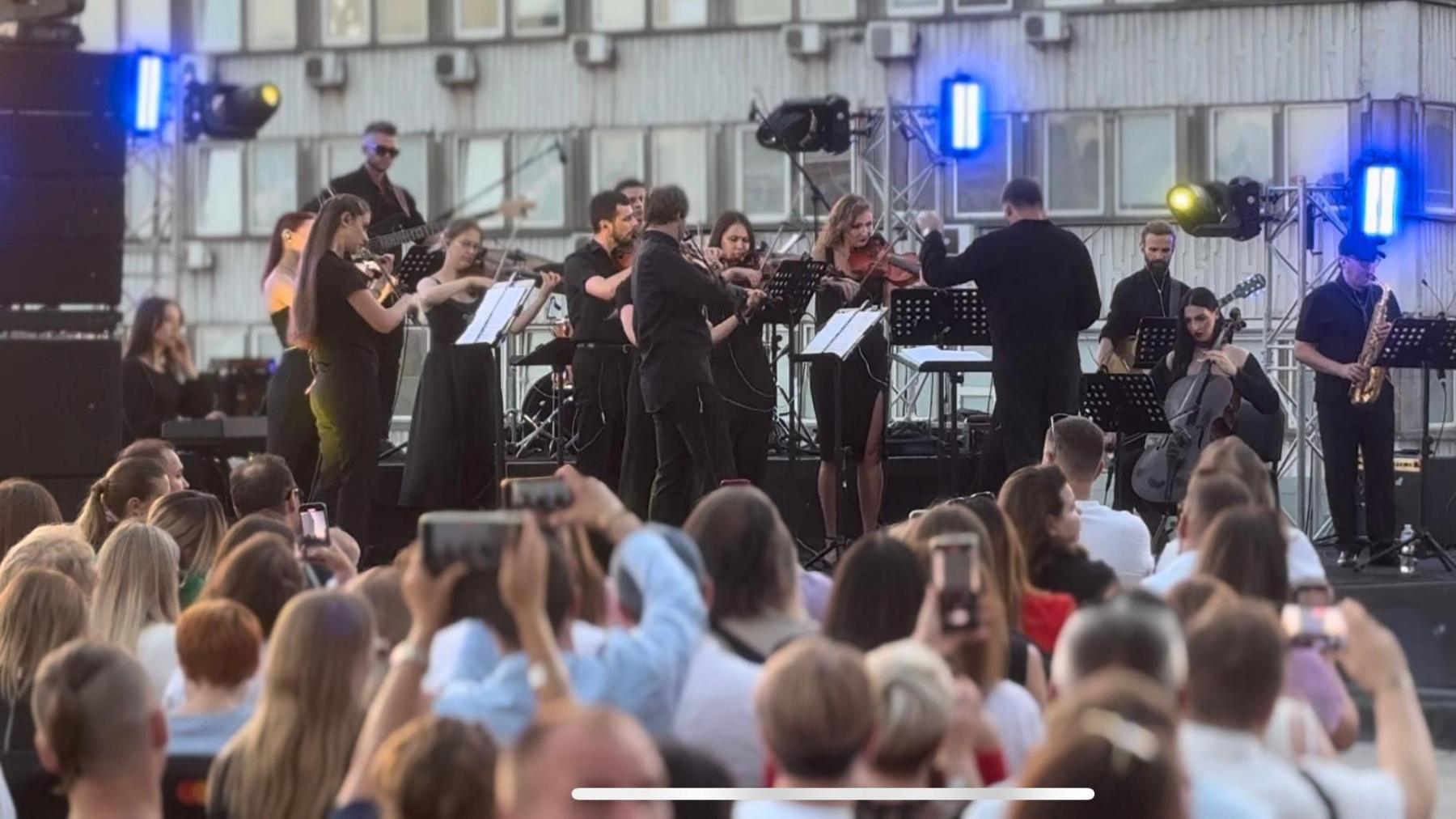
- Published
Along with all Ukrainians celebrating their Independence Day, 19-year-old student Yuliia Vyshnivska had been warned of an increased threat of Russian strikes.
But it had not stopped her and hundreds of others making their way up to an exposed rooftop for an open-air musical display of defiance in the heart of Kyiv.
“I heard on the radio the Americans were warning that the Russians will bomb you today, and I was like, ‘Oh my God, they want to kill us'," she said, as the setting sun illuminated the patterns of her traditional outfit, the vyshyvanka.
"But we’re used to it and know we live in this dangerous situation, so we are not scared."
As a dozen orchestral musicians, clad in black, pumped out high-octane takes on classic Ukrainian tunes, I mentioned one thing that is different from their last two Independence Days at war: Ukraine has now entered and taken Russian territory.
“When we saw this news from Kursk, from Russian region, it was an amazing event. It's like a miracle for us. We are so happy with it," Ms Vyshnivska said.
She said the fate that Russians on the border were now suffering, displaced and in danger, was a natural consequence of the full-scale invasion of Ukraine two and a half years ago.
“From that moment on we started hating them and now... we want to kill them. And it’s awful. I understand that it's not okay for humans to say this, but we hate them, and we can’t think in any other way because they want to kill us.”
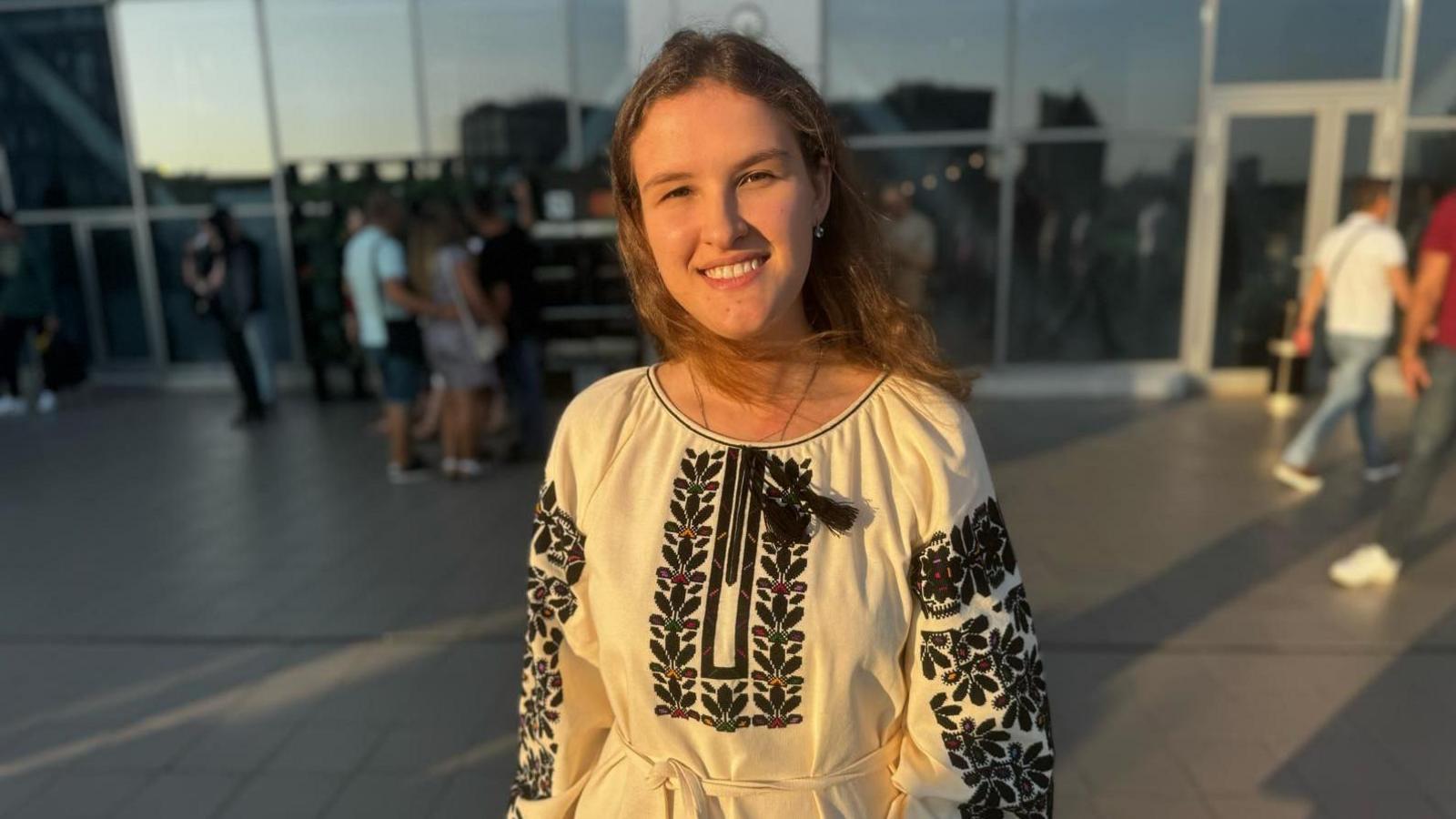
Yuliia Vyshnivska: “We live in this dangerous situation, so we are not scared”
President Volodymyr Zelensky, who attended a number of Independence Day events in the capital, gave a pre-recorded address from the Sumy region – just across the border from the newly gained Russian territory.
"Russia waged war on us. It violated not only sovereign borders, but also the limits of cruelty and common sense,” he told his people.
“It was endlessly seeking one thing: to destroy us. And what the enemy brought to our land has now returned to its home."
Nearly three weeks into the Kursk incursion, Ukraine has consolidated much of the Russian land it seized rapidly in the surprise operation.
An estimated 10,000 elite Ukrainian troops burst across the border on 6 August, taking more ground in a matter of days than Russia had won in Ukraine so far this year.
Since the operation began, the BBC has kept in touch with one of the Ukrainian fighters now in Russia.
In his latest messages to us, Serhiy - a pseudonym - revealed that the situation was tougher now.
“Russia has gotten stronger. We see this in the number of strikes by drones, artillery, and aviation. Their sabotage and reconnaissance groups began to operate too,” he wrote.
All meant the Ukrainians were taking more casualties, he said.
“At the beginning of the operation, we were on the rise. We had minimal losses. Now, because of the Russians’ firepower, we are losing a lot of guys. Moreover, the Russians here are fighting for their land, just as we are fighting for ours.”
Serhiy says his earlier elation is giving way to some scepticism.
“Many of us do not understand the meaning of this operation. It's one thing to fight for Kharkiv and Zaporizhzhia. It's a different matter for the Kursk region, which we don't need.”
President Zelensky had said the Kursk operation aimed to capture Russian soldiers - which led to a prisoner swap and the release of 115 Ukrainians on Saturday - among other goals he could not disclose.
He had also said the operation was a preventative strike to deter Russian attacks towards Sumy.
Despite the sense of justice and retribution the Kursk incursion has brought, it remains a risky strategy for Kyiv.
The rapid gains must be considered alongside losses in the east of Ukraine, where Russia continues to make ground in a grinding battle.
Moscow’s troops are drawing nearer to the city of Pokrovsk, which was home to around 60,000 before the fighting.
It is one of the biggest cities in the Donetsk region still under Ukrainian control and is an important hub for the defending forces.
“It’s a really difficult situation,” 23-year-old Nazar Voytenkov, a former TV journalist who is now a volunteer with the 33rd Mechanised Brigade defending Pokrovsk, told us on a crackly phone line.
I asked if he was aware of Russians troops being diverted to defend their own soil.
“No, no, I don't feel that. I think Russians have a big resource of troops in the Kursk region and elsewhere in Russia, and they’re using them in this operation that the Ukrainian forces started."
I asked if it had relieved any pressure on Ukrainian troops in the area - a key hope of Kyiv's.
“I don't feel like it’s become easier. We still have enemies in all directions and just last week, they tried again to approach," he explained.
“They used approximately 10 armoured vehicles and infantry to capture our positions, but we made a nice defence. We won this battle, and now we wait for their next fight. So no, they're still here.”
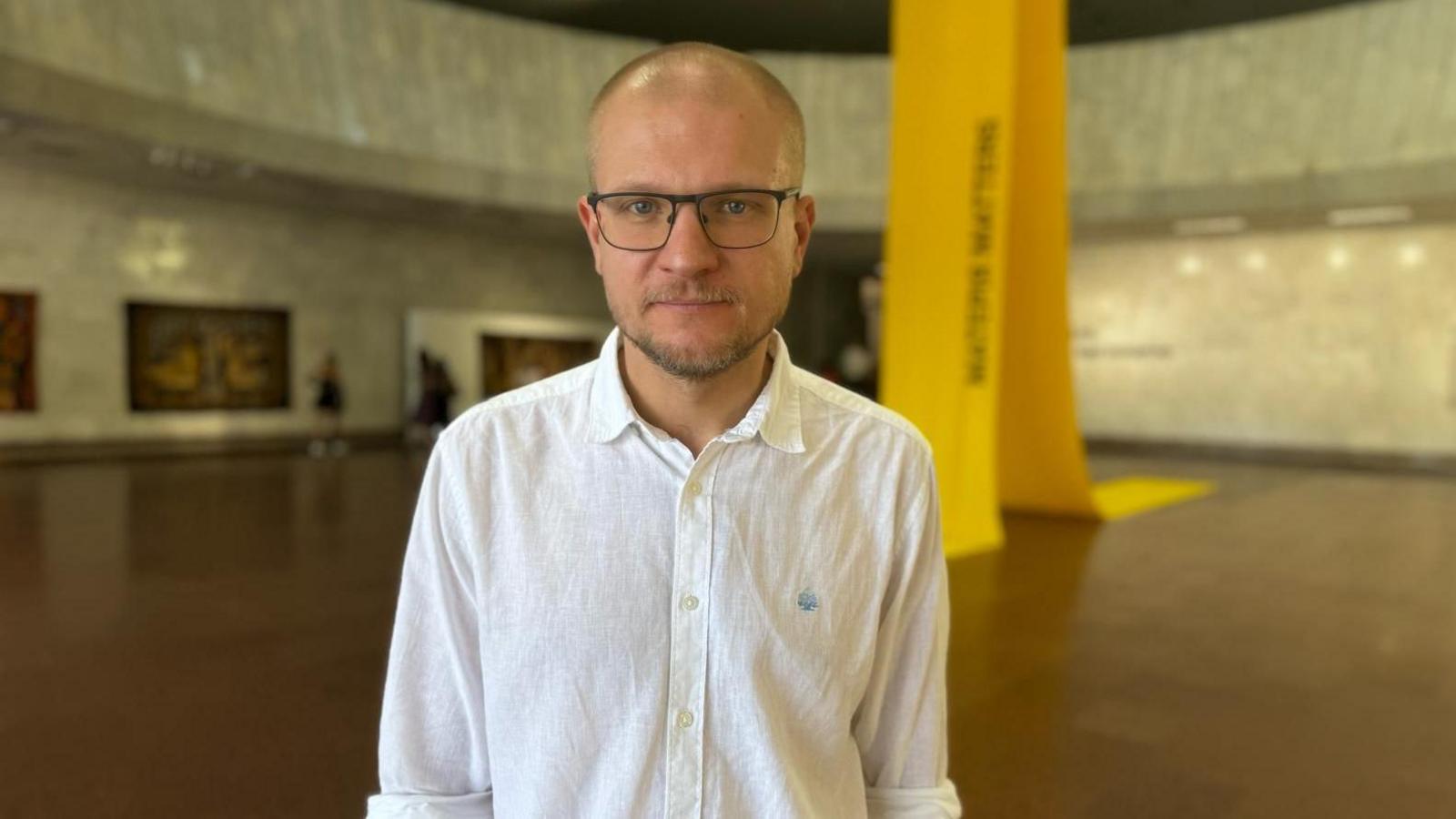
Oleksandr Mykhed: “This is just a monotonous, monotonous genocide”
This weekend’s celebrations were undoubtedly invigorated by the recent success on Russian soil, but Ukraine’s path to next year's Independence Day is no clearer and remains lined with danger and uncertainty.
“This is just a monotonous, monotonous genocide,” Oleksandr Mykhed, one of Ukraine's leading authors, declared quietly.
We met him in a cavernous exhibition building that used to house a museum to Lenin. He had just finished a lecture on his new book, which examines how the country’s great classical writers would consider the latest Russian invasion.
You would be hard pressed to find a better location to symbolise Ukraine’s evolution since becoming independent in 1991 and its determination not to be dragged back into Moscow’s orbit.
Of the Russians, Mr Mykhed said: “They want each and every missile strike to be called ‘another missile strike’. They want the whole world to get used to it and to make it routine, to make it ordinary. So that it would be the ‘ordinary genocide'."
I asked him what hope Ukrainians could cling to as they endured the coming 12 months until their next Independence Day.
“This is time for a clear understanding of what the true patriotism is. And we know what it is like," he said.
His argument was that despite the mental and physical scars and deep collective grief, everyone had a duty to be strong and ensure Ukraine’s survival.
“You might be tired for sure, everything might be depressed, but still - you have to save your country," the Ukrainian author said.
Additional reporting by Kyla Herrmannsen, Hanna Chornous and Anastasia Levchenko
Related topics
- Published7 August 2024
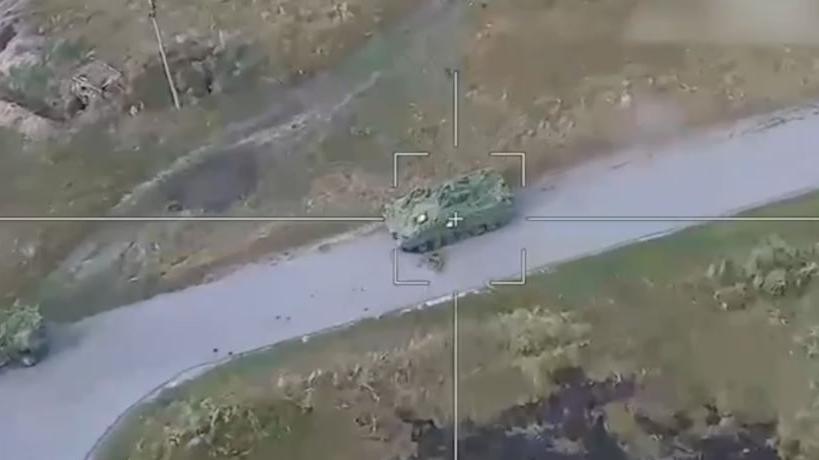
- Published13 August 2024
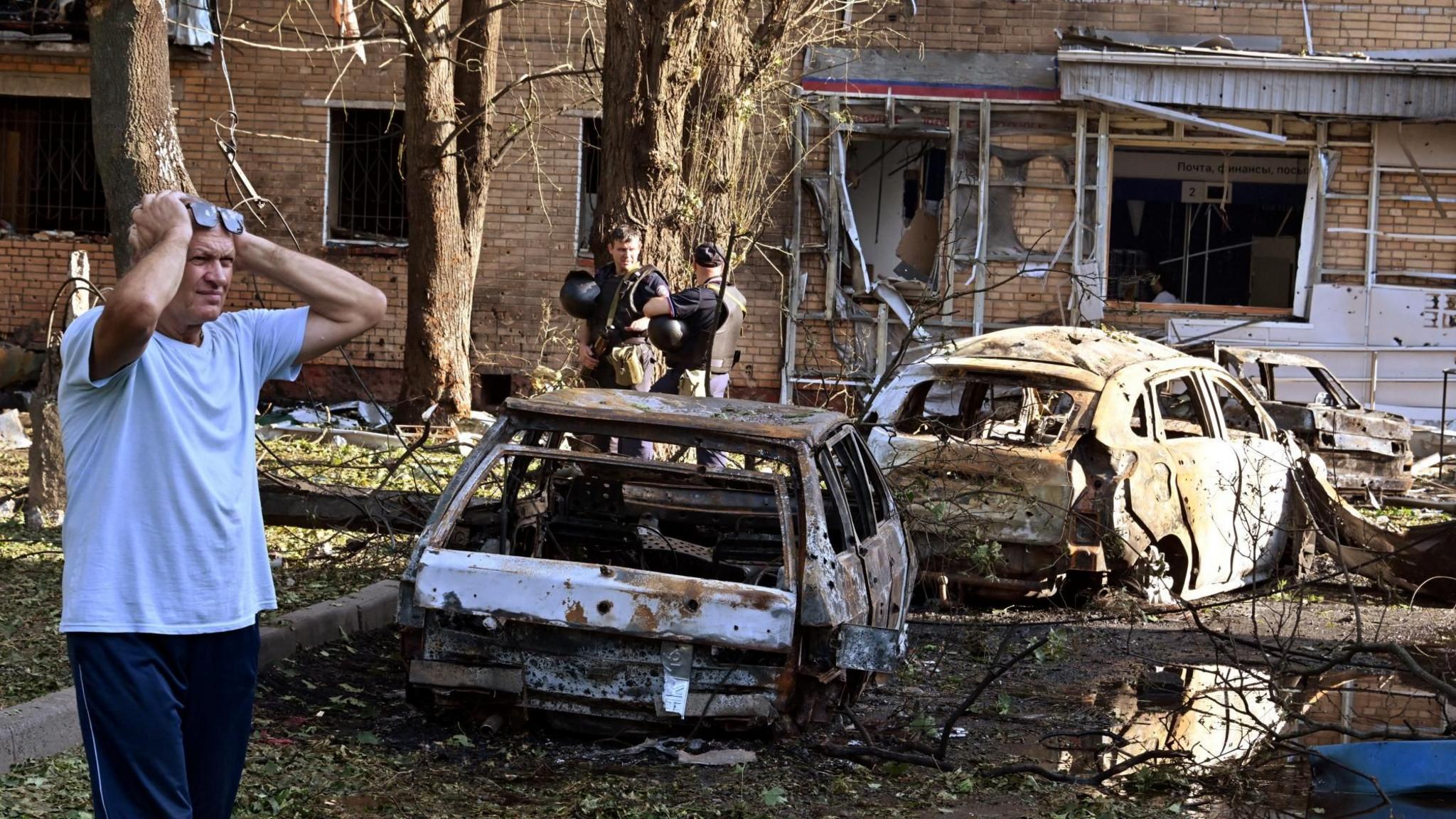
- Published24 August 2024
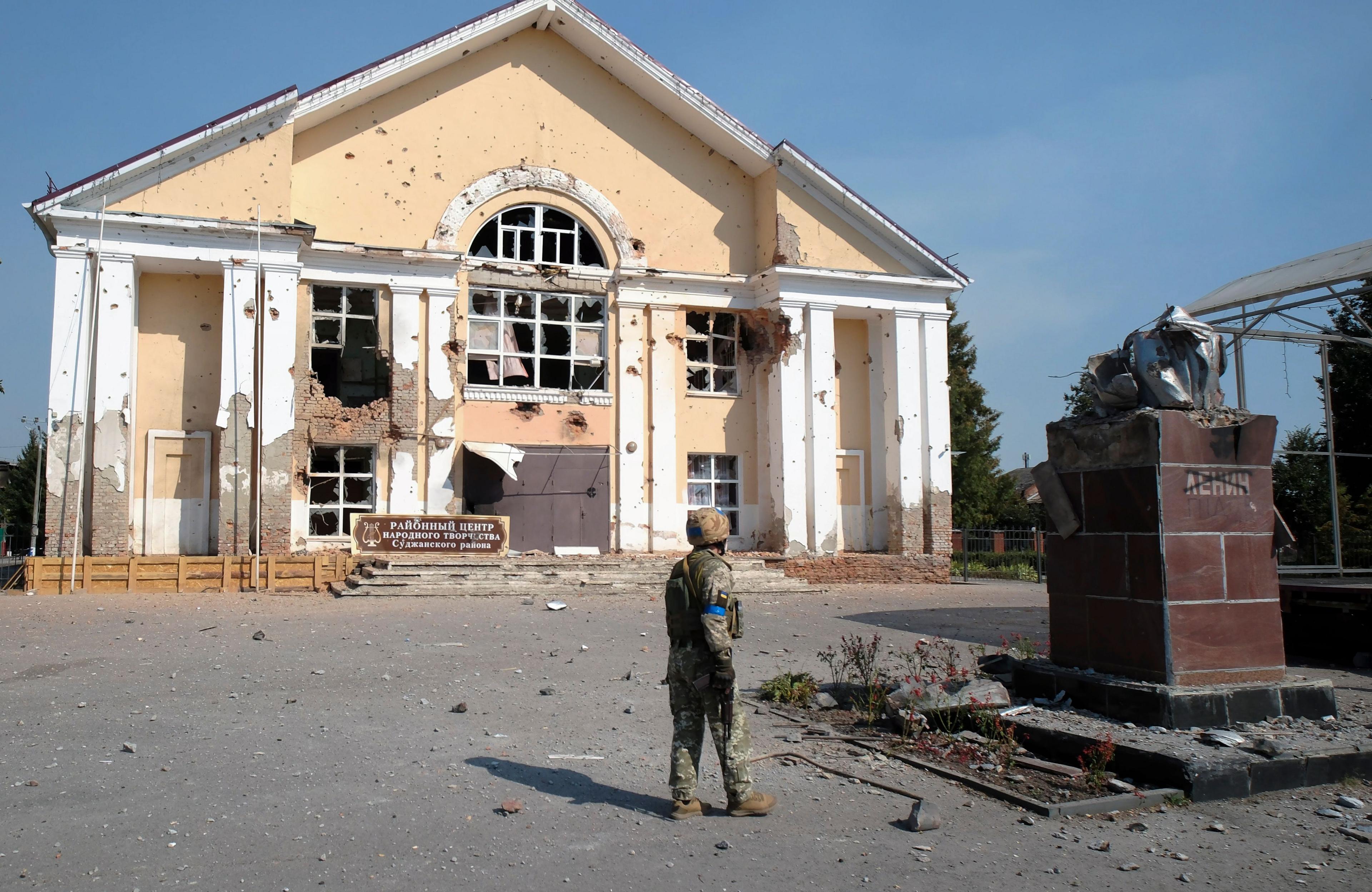
- Published13 April 2022
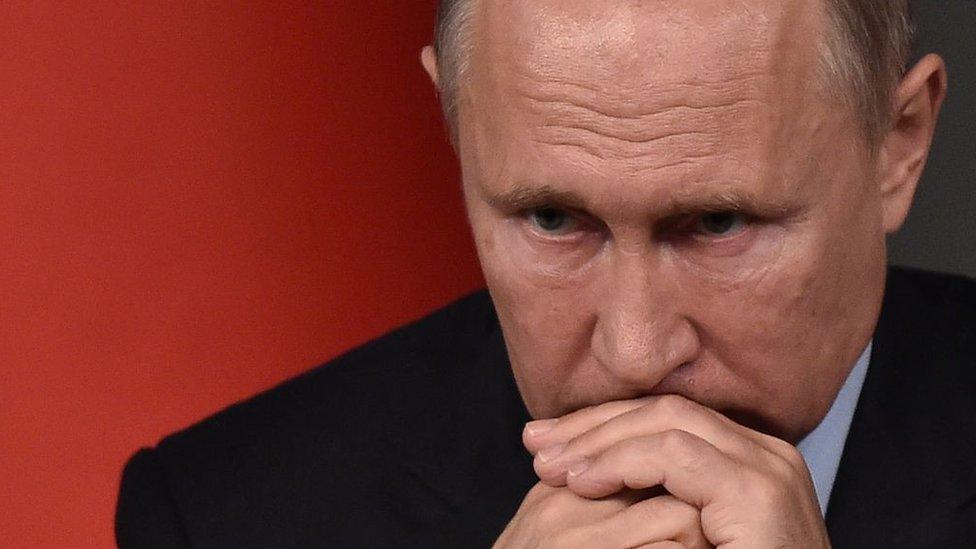
- Published2 February 2024
